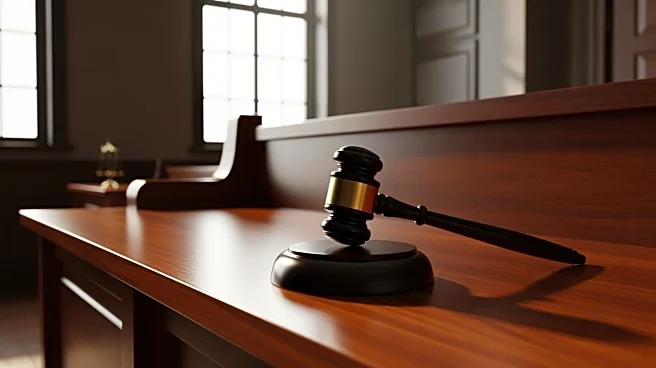What's Happening?
A federal magistrate judge has raised significant concerns about the Department of Justice's (DOJ) approach in the criminal case against former FBI Director James Comey. During a motions hearing in Alexandria,
Virginia, Magistrate Judge William Fitzpatrick described the DOJ's conduct as 'highly unusual,' suggesting a rushed indictment process that may have violated Comey's constitutional rights. The case involves allegations that Comey made false statements and obstructed a congressional proceeding related to his 2020 testimony before the Senate Judiciary Committee. The indictment, pursued by U.S. Attorney Lindsey Halligan, claims Comey lied about not authorizing leaks to the press, a charge he denies. The judge ordered the DOJ to provide all grand jury materials by a set deadline, reflecting his concerns over the handling of evidence.
Why It's Important?
This development is significant as it highlights potential procedural issues within the DOJ, particularly in high-profile cases involving political figures. The case against Comey, a former FBI Director, underscores ongoing tensions and allegations of political motivations within the justice system, especially given the backdrop of President Trump's administration. The outcome of this case could have broader implications for how similar cases are handled in the future, potentially affecting public trust in the DOJ's impartiality and adherence to due process. The scrutiny of the DOJ's actions may also influence future prosecutorial conduct and the handling of evidence in politically sensitive cases.
What's Next?
The DOJ is required to comply with the judge's order to hand over all grand jury materials by the specified deadline. This urgent requirement suggests that the court is taking the concerns about the DOJ's conduct seriously. The outcome of this compliance and the subsequent trial could set precedents for how evidence is managed and how indictments are pursued in politically charged cases. Stakeholders, including political leaders and legal experts, will likely be watching closely to see how the DOJ addresses these concerns and whether any procedural changes are implemented as a result.










